Inequality and Social Cholesterol: How to Find Balance in Society
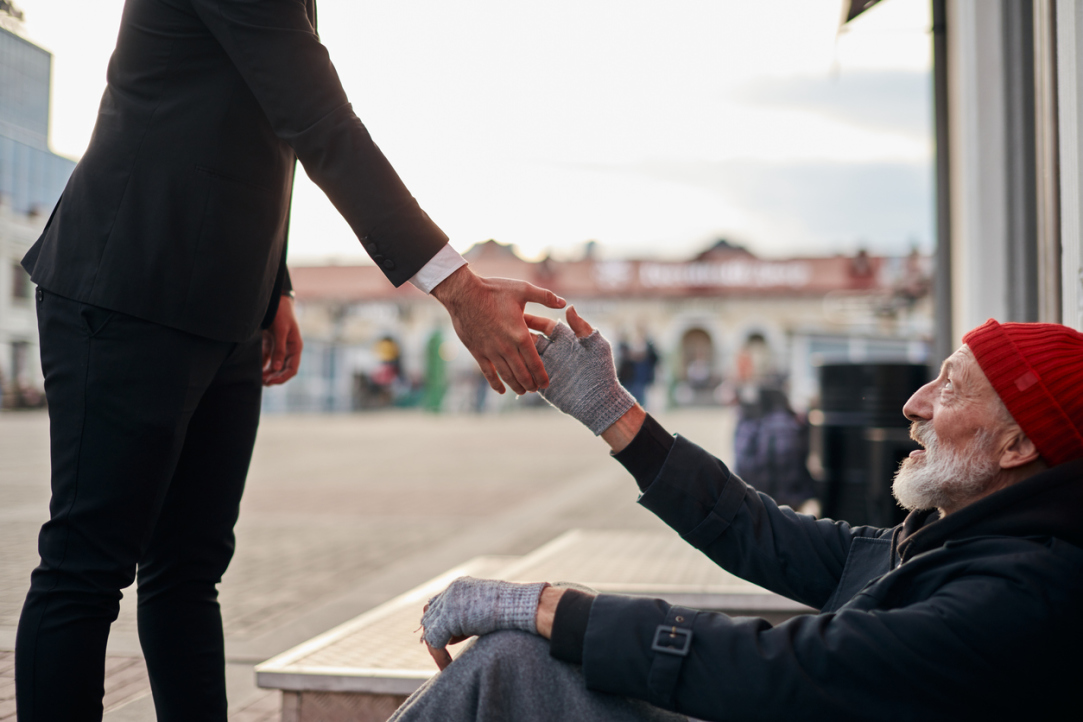
What are the outcomes of growing inequality? How much inequality is there in Russian healthcare and education? What does Russian society think about inequality? (Spoiler: that it’s excessively high and unfair.) These questions and many others were discussed by Russian and French researchers at the conference ‘Socio-economic Inequality and Poverty in the Modern World: Measures, Dynamics, and Prospects in an Age of Uncertainty’.
The Human Capital Multidisciplinary Research Centre and the HSE Institute for Social Policy have held an online conference on ‘Socio-economic Inequality and Poverty in the Modern World: Measures, Dynamics, and Prospects in an Age of Uncertainty’. The conference was organized in cooperation with the University of Luxembourg and the Paris Institute of Political Studies with support from the French Embassy in Russia.
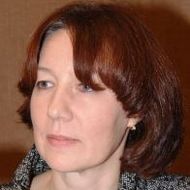
Professor Lilia Ovcharova
‘Inequality is one of the key topics we discuss at the Centre. It is also a global challenge faced by humankind. We hope our conference will enable us to expand our range of sources and focus on new issues,’ said Professor Lilia Ovcharova, HSE Vice Rector and founder of the Centre, in her opening remarks. The floor was then given to Abdo Malac, Counsellor for Science and Technology of the French Embassy, who emphasized the importance of continuous bilateral scientific relationships and studies of inequality-related issues.
Louis Chauvel, Professor of Sociology at the University of Luxembourg, made a presentation titled ‘Revenue vs Wealth at the Global Level: How the Knowledge of Wealth Changes the Future of Revenue Flows’. Prof. Chauvel reminded the audience that Branko Milanović, a Serbian-American economist, likens inequality to ‘social cholesterol’. ‘Good’ inequality incentivizes investment in both human capital and social and economic development, while ‘bad’ inequality blocks social elevators (hindering social mobility) and prevents people from escaping poverty.
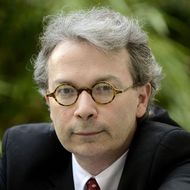
Professor Louis Chauvel
Prof. Chauvel pointed out that people from different social groups think of wealth differently. People with low incomes think they are rich if they can meet their most basic needs. Middle-class people believe themselves to be comfortably well-off if they can buy real estate and secure a happy and prosperous old age. The elite are rich enough to pay for trips to space and invest in science. However, their wealth is dangerous, as it leads to excessive social polarization.
The growth of intolerable inequality poses the risks of social disturbances, civil wars, and other calamities. Major effort is needed to reduce this inequality. Prof. Chauvel explained that wealth inequality creates more problems than income inequality because it creates social discontent by preventing social mobility.
According to economists, the Gini coefficient of wealth inequality is twice that of the same ratio for income inequality. The risk of a transition to a highly polarized society is growing, as is the TWIR index of the number of years it takes to ‘earn’ the level of super-wealth that 1% of the world’s elite enjoy. Over the past three decades, the TWIR index has risen from 80 to 200 years in the USA and from 60 to 140 years in China.
The issue of wealth is a strategic one. The growth of wealth increases inequality, which may cause mass discontent
Professor Sergey Shishkin, Director of the HSE Centre for Health Policy, spoke about inequality in access to medical care in 1994–2017. His study is based on the Russian Longitudinal Monitoring Survey (HSE), public polls from 2014 and 2017, and budget spending data provided by the Russian Compulsory Health Insurance Fund.
The study shows that the number of people seeking medical help in the event of illness depends primarily on the type of community they are from: people living in the capital and other major cities visit doctors more often than those in towns or villages. At the same time, the reasons why people prefer not to see doctors do not seem to depend much on their social or demographic background.
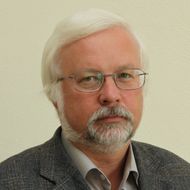
Professor Sergey Shishkin
Payment for healthcare services, including informal payment, differs greatly from region to region. The highest level of payment is seen in southern regions of Russia, where 47% of patients pay for treatment. This is largely due to socio-cultural traditions.
The HSE expert noted that reforms of the Russian Compulsory Health Insurance System reduced both inequality in access to healthcare and the difference in regional budget expenditures on healthcare per person.
Prof. Shishkin said that inequality in households’ healthcare expenditure per person is much higher than the general level of income inequality. Income inequality remains the key factor behind inequality in access to healthcare services. Prof. Shishkin believes that the pandemic may have increased inequality in access to medical help.
Sergey Malinovsky, Deputy Director of the HSE Institute of Education, and Ekaterina Shibanova, Junior Research Fellow of the Laboratory for University Development at the HSE Institute of Education, made a presentation entitled ‘Regional Differences in Access to Higher Education in Russia’.
The speakers said that Russian households pay almost 50% of the costs of higher education. Russia is a leading country in terms of tertiary education coverage, but this is primarily due to vocational education. In terms of university education, Russia retains a modest position compared to OECD countries.
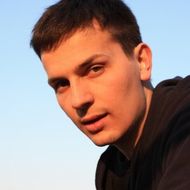
Sergey Malinovsky
Active government policy on education has reduced the number of regional university campuses and distance-learning institutions. In many regions, higher education barely covers 20% of young people of university age. Higher education has become less accessible in remote areas and southern regions of Russia, but the situation remains unchanged in the central part of the country, large cities, and major university centres such as Tomsk and Novosibirsk. Remote Russian areas now have fewer available distance learning courses.
Compared to the population’s income, the cost of higher education has increased, while the cost of vocational education has remained the same.
According to Sergey Malinovsky and Ekaterina Shibanova, there are regional restrictions in access to higher education. Opportunities to go to university are increasingly dependent on where people live. Those who live in villages or towns are now deprived of opportunities to study at regional university campuses, there are fewer opportunities to obtain degrees through distance learning, and it is too expensive to study in regional centres due to the higher costs of meals and accommodation. The speakers said that a new wave of higher education expansion might result in a reduction in quality.
Svetlana Mareeva, Director of the Centre for Stratification Studies at the HSE Institute for Social Policy, made a presentation titled ‘Inequality in Russia and Its Perception: Challenges and Opportunities’. According to the speaker, different attitudes to inequality, such as whether it is fair or not, allow experts to conduct comprehensive analysis of this phenomenon and find more effective solutions to emerging challenges.
The speaker noted that based on traditional estimates, the level of income inequality in Russia could be seen as high, but not extremely high. Poverty in Russia has mostly been decreasing in recent years, and incomes among the poorest members of the population have been growing faster than those in other groups. Middle-income groups make up the majority of the population structure, and the gap between middle-income and low-income people is narrowing, which reflects a certain decrease in inequality. However, the ‘area of common good’ is reducing as well, which raises questions about the future of the Russian middle class and maintaining the quality of life of highly-qualified people. Both the decrease in the well-off segment and its instability are of particular concern.
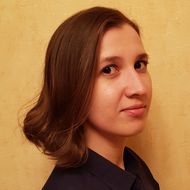
Svetlana Mareeva
However, in terms of the concentration of income and wealth, Russia is among the world’s leaders. Monetary inequality goes hand in hand with a relatively high level of non-monetary inequality. Only few Russian people enjoy a high level of education, good health, and subjective welfare.
Svetlana Mareeva says that mass perception of inequality is yet another issue to be addressed. Despite progress in dealing with poverty, inequality is still seen as excessively high and unfair, and these attitudes have been prevalent for the entire post-Soviet period. Moreover, they seem to be shared by different population groups, and most people believe that it is mainly the government that is responsible for reducing inequality. The speaker notes that this is not a request for one-size-fits-all policy. To Russians, fairness is first and foremost about non-monetary equalities (equality under the law, access to healthcare and education, etc).
Are there certain limits within which inequality is beneficial for society’s development? How can we direct inequality along a meritocratic path to encourage the population’s investment in human capital? These are questions to be answered
At the end of the conference, Lilia Ovcharova noted the importance of approaches that can be used to align objective evaluations and subjective attitudes to poverty and inequality. ‘We know how to do the necessary diagnostics, and we are going to develop the tools and prepare a report on the policy aimed at reducing ‘bad’ inequalities. It is crucial to demonstrate effective solutions for cutting down on bad “social cholesterol”’, said Lilia Ovcharova.
She noted the emergence of new forms of inequality, particularly digital ones, and the importance of interdisciplinary studies to obtain new results.
Among the speakers were Anna Lukyanova, Senior Research Fellow of the Centre for Labour Market Studies, Julien Blasco, Administrator of the French National Institute for Statistics and Economic Studies (INSEE), Roland Pfefferkorn, Honorary Professor of Strasbourg University, and Julien Damon, Associate Professor of the Paris Institute of Political Studies. The discussion was joined by Oksana Sinyavskaya, Deputy Director of the HSE Institute for Social Policy, Sergey Smirnov, Head of the Centre for Social Programmes and Risk Analysis, and Maria Nagernyak, HSE Deputy Vice Rector.
See also:
Pivot to the East: A Comprehensive Study of the Cultural and Civilisational Centres of the Non-Western World is the Top Priority
China and the Chinese world, South Asia, Southeast Asia, the Arab countries, Iran, Turkey, Central Asia and Africa are gaining new significance in Russia’s foreign policy. However, we do not know enough about the Eastern countries. It is necessary to change the priorities in education, starting from grammar school. Prospects for the development of domestic Oriental studies in the context of the new stage in the development of the system of international relations were discussed at a round table at HSE University.
‘I Admire HSE Students’ Eagerness to Learn, to Discuss, to Broaden Their Perspectives’
Robert Romanowski was a ‘Digital Professor’ at HSE University in November 2021. In his interview for the HSE News Service, he talked about the specifics of online teaching, his course on Strategic Branding, and the skills that are essential for marketing professionals today.
Russia and Africa: Time to Expand Cooperation
There is major potential for economic and humanitarian cooperation between Russia and African countries. Particularly, Russian organisations and universities can help transfer competencies and knowledge in the fields of agriculture, energy, industrial production, environmental management, climate change, and public administration. Experts and representatives of African embassies in Russia discussed these issues at the round table ‘Russia-Africa Sharing Knowledge’ hosted by HSE University.
The Brain in Space: Investigating the Effects of Long Spaceflights on Space Travellers
As part of an international project conducted with the participation of Roscosmos and the European Space Agency, a team of researchers used differential tractography to analyse dMRI scans ofcosmonauts’ brains and found significant changes in brain connectivity, with some of the changes persisting after seven months back on Earth. The paper is published in Frontiers in Neural Circuits.
HSE University-Perm and the Training Centre of the Uzbek Ministry of Finance Sign Cooperation Agreement
HSE University in Perm has become the first academic partner of the Training Centre under the Ministry of Finance of the Republic of Uzbekistan. The parties have signed a cooperation agreement in education and research.
HSE University Strengthens Ties with Netherlands in Agricultural Research and Education
On November 9, 2021, HSE University signed a memorandum of understanding with Wageningen University & Research, a major university in the Netherlands and one of the leading agricultural research institutes in the world. Participants of the signing ceremony included HSE University Rector Nikita Anisimov, President of the Wageningen University & Research Executive Board Professor Louise Fresco, and Dutch Ambassador to Russia Gilles Beschoor Plug.
The Majority of Russians Do Not Support Microchip Implants
The majority of Russians would not agree to being fitted with microchip implants for any purposes—medical or otherwise. A joint study conducted by HSE University’s International Laboratory for Applied Network Research and Aventica found that respondents believe the risks of personal data leaks and misuse to be too high.
‘We Can Now Say That the Finance Conference Is Global’
The 10th International Moscow Finance Conference, organized by HSE ICEF, took place on October 29–30 online. Vladimir Sokolov, Head of the International Laboratory of Financial Economics, which hosted the conference, talks about the participants, the key presentation topics and how they will impact the global economy.
HSE University Scholars Study Green Transition Risks and Greenhouse Gas Emission Regulation
The UN Climate Change Conference is taking place from October 31 to November 12 in Glasgow. The conference focuses on preventive measures against the catastrophic and irreversible consequences of rising average global air temperatures. Igor Makarov, Head of the HSE Laboratory for Economics of Climate Change, will be taking part in the Glasgow conference. In the following interview, he speaks about the pressing problems Russia and the world are facing, and the research HSE scholars are doing on climate change.
Applications to Speak at eSTARS 2021 Conference Accepted Until November 15
HSE University and Coursera are bringing together the world’s leading researchers, professionals, education and technology leaders, and business community representatives for the fourth international research conference eLearning Stakeholders and Researchers Summit 2021 (eSTARS). This topic of this year’s summit, which will run from December 1–2, 2021,is ‘Digital Transformation: Global Challenges to the Education System’.


